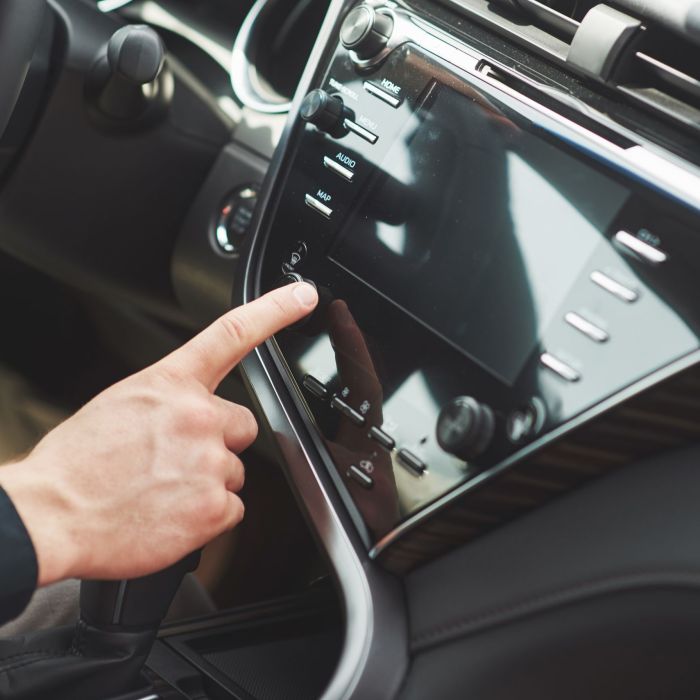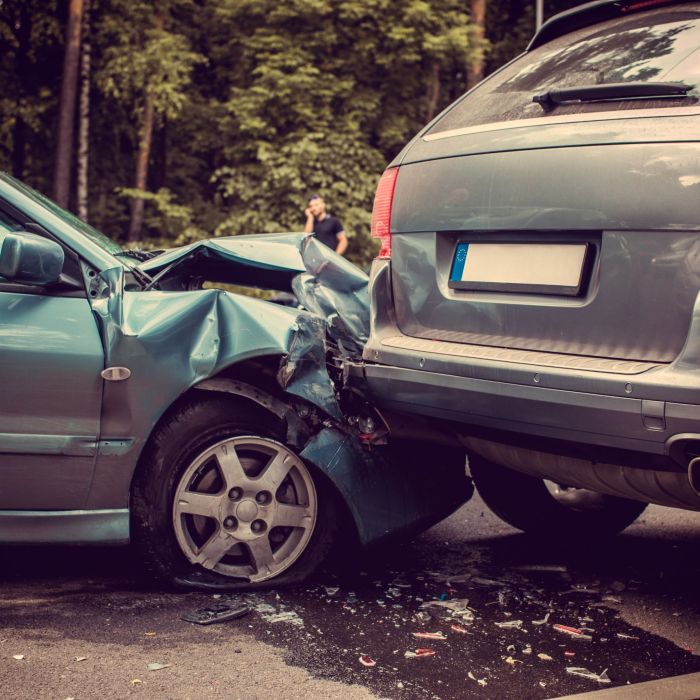One minute, you’re cruising along the road, and everything seems fine. The next, you hear a strange sound coming from your car as you accelerate. While some noises are completely normal—like the hum of the tires, the whirr of the windshield wipers, or the whistling of mirrors in the wind—others could signal a problem. Recognizing the difference is crucial to preventing major issues down the road. Here are 12 common car noises, along with what they might mean and how to address them.
1. Hissing Sound Under the Hood
If you hear a high-pitched hissing noise after you turn your car off, it could indicate a leak in the air conditioning system or vacuum system. If the sound occurs while the car is running, it usually points to a vacuum line, hose, or fitting that’s leaking. Either way, it’s a good idea to have it checked out soon.
2. Chugging or Rattling from the Exhaust
A broken exhaust system can produce a variety of sounds. A chugging noise might suggest a blockage in the exhaust, while a rattling noise could point to misalignment of the wheels. A hissing sound might indicate a crack in the exhaust system. If you notice any of these, take your car in for an exhaust check as soon as possible.
3. Buzzing or Grinding Noise
If you hear a buzzing or grinding sound while driving, it could mean a few things. It could indicate that the differential needs lubrication, the transmission is failing, or the wheel bearings or universal joints are worn. Pay attention to when the noise happens to help your mechanic diagnose the issue more accurately.
4. Scraping or Grinding When Braking
A scraping or grinding noise when you brake is a clear sign that your brake pads are worn down. If you hear this sound, it’s time to replace the pads, or you risk damaging the brake rotors. Have your brakes checked out immediately to avoid further damage.
5. Clunking or Knocking Sound
A clunking or knocking noise, especially while turning or going over bumps, could indicate a worn wheel bearing or misaligned tires. First, check the tires for any flat spots or signs of damage. If the tires are fine, then it’s likely an issue with the wheel bearings or alignment.
6. Scraping from Windshield Wipers
If your windshield wipers are making a scraping noise, it’s probably time to replace the wiper blades. A worn-out wiper blade can not only leave streaks on your windshield, reducing visibility, but it can also damage your windshield over time. It’s best to address this issue promptly.
7. Squeaking from Windshield Wipers
Squeaking from your windshield wipers may be caused by a dirty windshield or dirty wiper blades. Clean both thoroughly, and if the squeaking persists, it could mean that the wipers themselves need replacing. Don’t ignore this—good wipers are essential for safe driving in rainy conditions.
8. Clunking Over Bumps
If you hear a clunking sound when you drive over bumps, it could signal a problem with your car’s suspension. Issues could include worn shock absorbers, damaged struts, faulty control arms, or bad ball joints. Have your suspension system checked to ensure a smooth ride.
9. Clicking or Knocking While Turning
If you hear a clicking or knocking sound when turning, it’s likely a problem with the CV (constant velocity) joint. The CV joint is responsible for lubricating the front axles, and when it wears out, it loses the grease needed for proper lubrication. Replacing the CV joint early can prevent costly repairs down the line.
10. Ticking Engine Noise
A ticking engine noise can be caused by several factors. It might be due to low engine oil or oil pressure, which leads to friction between metal components like pistons and cylinders. A misaligned spark plug or intake/exhaust valves can also cause ticking sounds. If you hear this noise, it’s important to address it quickly to avoid engine damage.
11. Growling or Grinding When Steering
A growling or grinding noise while steering could be an issue with your wheel bearings. If this noise occurs when turning or driving at high speeds, it’s essential to get the bearings checked out. Early detection can help save time and money on more extensive repairs.
12. Squealing While Turning the Steering Wheel
Squealing when turning the wheel typically points to low power steering fluid. If you hear this sound, check your fluid levels and top them off if necessary. If there are no leaks, the noise should subside once the fluid is replenished.
Take Action Early
Recognizing and addressing strange car noises promptly is the key to avoiding expensive repairs. Always pay attention to how your car sounds, and don’t hesitate to take it to a trusted mechanic when you notice something unusual. Early intervention can save you money and extend the life of your vehicle.
Additionally, remember that taking care of your car isn’t just about maintaining its performance—it’s also about ensuring it’s properly insured. Find the right insurance policy that fits your needs and protects both you and your vehicle.






